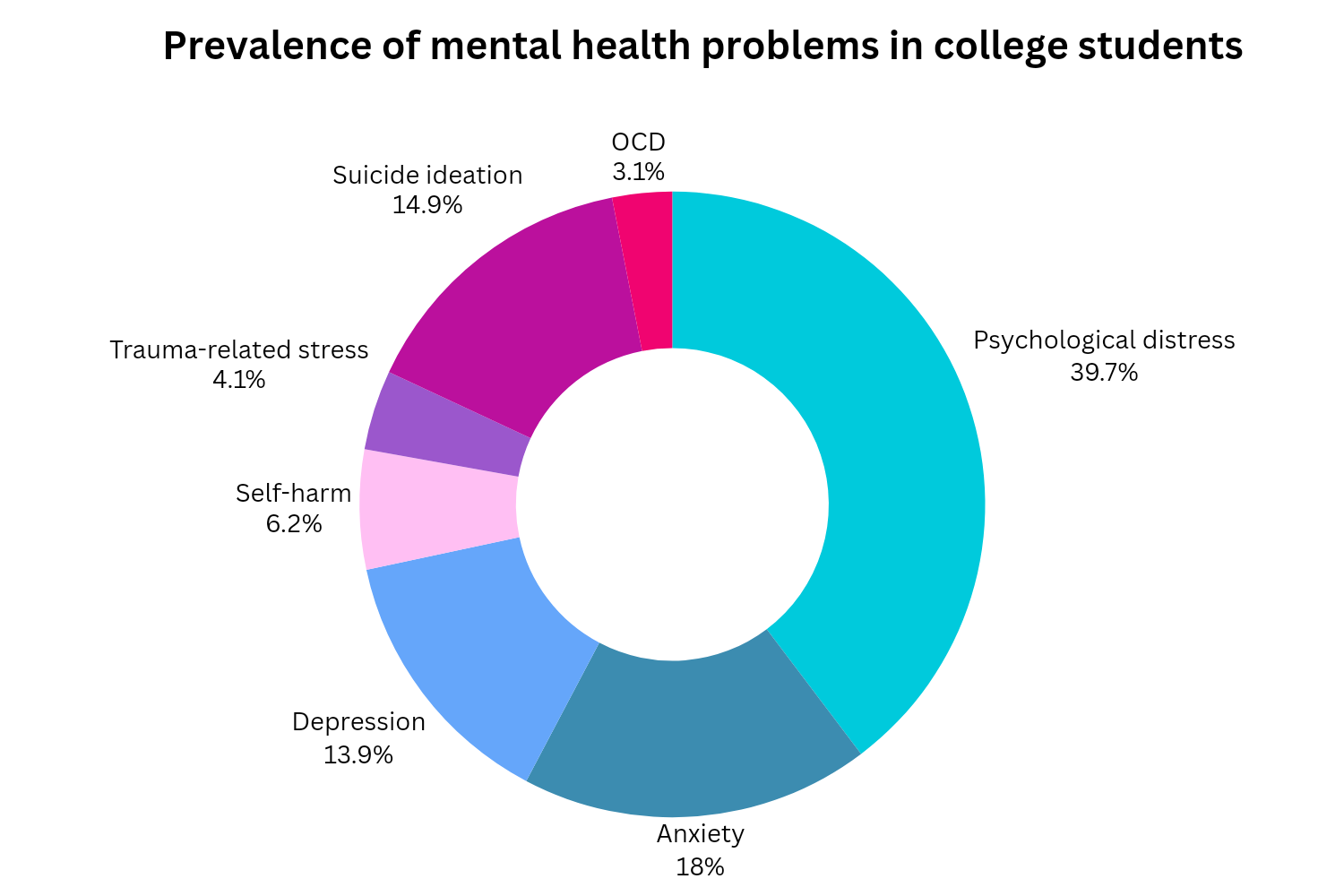The demands of coursework, exams, and extracurricular activities can create significant stressors that impact mental well-being. Having balance between academic pursuits and mental health is essential for long-term success and overall life satisfaction. This article talks about the various ways you can achieve a balance between your mental health and academics.

Image based on data from the American College Health Association
Understanding the Connection between Academic Success and Stress
While academic success can positively influence mental well-being, the reverse is equally true. High-stress levels, anxiety, and burnout can detrimentally affect cognitive function and academic achievement. Recognizing and acknowledging this is the first step toward achieving a balanced approach.
Effective Time Management
One key to balancing mental health and academics lies in effective time management. Developing a realistic schedule that allocates time for studying, attending classes, and engaging in self-care activities is crucial. Prioritizing tasks and setting achievable goals helps in preventing the overwhelming feeling that often accompanies academic pressures.
Setting Realistic Expectations
Often, students succumb to the pressure of unrealistic expectations, whether self-imposed or external. It’s important to set achievable goals, recognizing personal limitations and embracing the concept of progress over perfection. This mindset shift can alleviate the stress associated with unattainable standards and foster a healthier approach to academic pursuits.
Incorporating Self-Care Practices
In the hustle of academic life, self-care can be neglected. However, prioritizing mental health requires intentional efforts to incorporate self-care practices into daily routines. This may include activities such as exercise, mindfulness, adequate sleep, and recreational pursuits. Taking breaks and stepping away from academic responsibilities is not a sign of weakness but a proactive measure to recharge and maintain overall well-being.
Seeking Support
Acknowledging the need for support is a strength, not a weakness. Students facing academic and mental health challenges should feel empowered to seek assistance. This support can come from friends, family, academic advisors, or mental health professionals. Educational institutions often offer counselling services that can provide valuable resources and coping strategies. Anxiety and depression are the most common diagnoses, affecting 35% and 27% of students respectively.
Creating a Supportive Environment
Institutions play a crucial role in promoting a healthy balance between academics and mental health. Creating a supportive environment includes fostering open communication, reducing stigma around mental health discussions, and providing access to resources that facilitate well-being. Recognizing the individuality of each student and implementing flexible academic structures can contribute to a more inclusive and understanding atmosphere.
Mindful Studying Techniques
Incorporating mindfulness into study routines can enhance focus and reduce stress. Techniques such as deep breathing, meditation, or brief breaks for stretching can improve cognitive function and create a more positive study experience. Integrating these practices into daily academic routines contributes to a holistic approach to well-being.
Building Resilience
Resilience is a valuable trait that contributes to both academic and mental health success. Embracing challenges as opportunities for growth, learning from setbacks, and maintaining a positive outlook can bolster resilience. Developing coping mechanisms to navigate academic pressures and setbacks contributes to a more robust mental health foundation.
Balancing Social Connections
Academic pursuits should not come at the expense of social connections. Maintaining a healthy balance between academic responsibilities and social interactions is vital for mental well-being. Building a support network of friends and engaging in social activities fosters a sense of belonging and reduces feelings of isolation. If you are a college student struggling with your mental health, please know that you are not alone. There are many resources available to help you, including counseling centers, hotlines, and support groups. You can also talk to your doctor or a trusted friend or family member.
